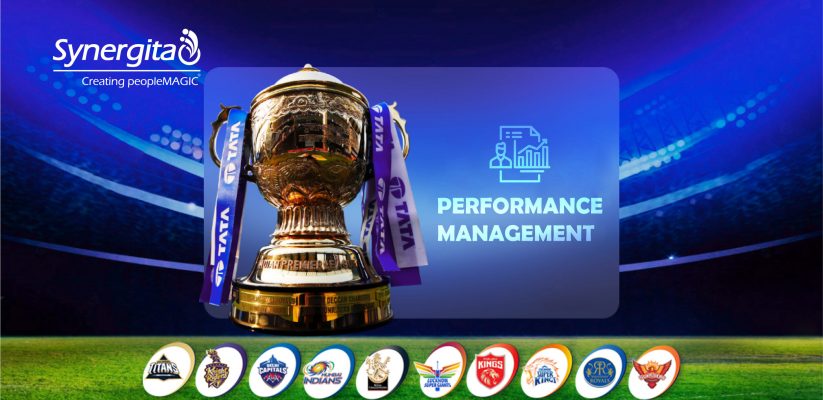What IPL teaches about Performance Management
Cricket is one of the most popular sports in the world. The twenty-twenty format has made the sport more accessible, with the IPL drawing in millions of viewers to cheer their teams on and see how they fare against each other. As fans eagerly anticipate the thrilling conclusion of the league, the IPL also teaches valuable lessons about performance management and business strategy. The success of high-performing teams can be attributed to several factors, with effective management strategies at the forefront. This article explores what we can learn from the IPL about performance management, which can also be implemented in a business context for effective results.
Prioritizing Communication and Increasing Brand Value
One of the most prominent business success stories revolves around the Shah Rukh Khan owned Kolkata Knight Riders. With a keen understanding of the entertainment industry, the Bollywood celebrity has developed his team as a brand itself that is widely supported and followed closely. Out of all the teams in IPL, the Kolkata Knight Riders are the only team that has increased their revenue and, subsequently, their valuation. A large key to this success is moving past the love of cricket alone and utilizing a sports management-driven staff. What Shah Rukh Khan has done with his team that several others haven’t is to prioritize communication. Not only within his team but also to fans, stakeholders, and anybody interested in the team. It allows various stakeholders to come together in alignment that prioritizes the common interests of the team as a brand.
Similarly, clear, transparent, and effective communication channels within your enterprise can lead to your own success story. Performance management tools and techniques can create these communication channels within your enterprise. Silos between departments are eliminated so your entire enterprise can be aligned towards singular business objectives. It allows all of your employees to work seamlessly toward the enterprise’s best interest.
Effective Leadership
India Cements-owned Chennai Super Kings has rallied around the success of India’s ODI captain, M.S Dhoni. The team’s success can also be attributed to India Cements’ long-term association with the game and their experience owning cricket teams for nearly four decades. What CSK’s story can teach us is the value of effective leadership. This leadership comes from experienced owners and an effective captain who is motivational and inspiring for the team and their fans.

Effective leadership in your enterprise is also a significant factor that will determine the success of your performance management solution. The right software in the right hands can be highly effective in your enterprise. Hallmarks of an effective leader include the following.
- Shares the collective vision of the enterprise and its management
- A wide array of skill sets and experience.
- Not afraid to voice their opinions.
- Ability to ask questions and provide valuable feedback.
- Set clear and well-defined goals for the team.
- Focus on the team as a unified whole.
Analyze Strengths and Weaknesses
To create both winning and high-performing teams, it is essential to evaluate the collective and individual strengths and weaknesses thoroughly. This strategy has allowed underperforming teams in the IPL to understand what they need to do to stay ahead in the game. This evaluation also allows coaches to focus on their individual players’ skills and improve them with rigorous training and valuable feedback. Focusing on the overall strengths and weaknesses of the team allows the team to improve as a whole.
An effective performance management system can be used in your enterprise for similar results. Your employees should be able to understand where they stand within the enterprise. Quantifiable and accurate metrics should measure their performance, and they should be offered mentorship and training programs to improve in areas in which they are lacking. Performance management software can keep track of your employee’s performance and provide valuable performance data and analytics that allow you to implement the correct programs. High-performing employees should be recognized and rewarded, while underperforming employees are encouraged to improve. It will enable your enterprise as a whole to improve over time steadily.
Encourage Diversity in Experience and Skills
The IPL strongly promotes diversity with players from different countries working together within a team. This diversity allows for the mixing and matching diverse talents and abilities to create a cohesive team that works well together. Diversity can benefit your enterprise as well. Problem-solving through the use of diverse ideas and personalities, each with their own experience, provides the opportunity for creative and unique solutions to emerge. Your performance management system should reflect this ability of diverse elements to come together in unity.
Encourage Collaboration
Strong teams are focused on collaboration and are aware of the contributions of each individual member. Responsibilities and rewards are shared when the team lifts the trophy as a collective unit.
Collaboration within your enterprise should also be encouraged. Collective responsibilities and sharing the rewards bring together individuals in alignment with your enterprise’s broader vision. It dilutes the blame game and allows for a synergetic and collaborative work atmosphere within your enterprise.
Conclusion
IPL teams have a lot in common with teams in the corporate world regarding performance management and lessons that can be learned from the cricketing world. This article has demonstrated some of the valuable lessons from the IPL that you can implement in your enterprise.

